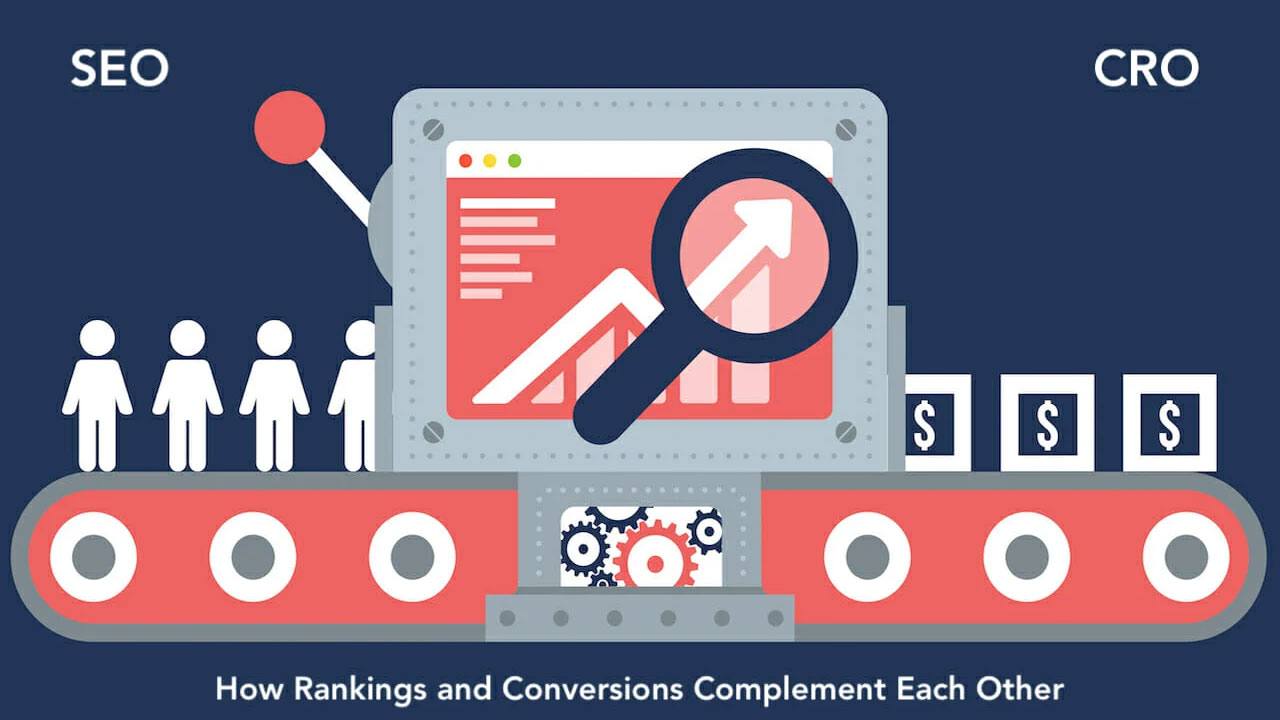Reasons for Doing More Keyword Research
These Are The Reasons Keyword Research Is Going To Be Big In 2022
Whether you want to increase traffic to your website or sell a certain product, knowing how to do Keyword Research is critical to your success. When it comes to locating information on the internet, search engines rely on the terms entered by the user.
Search engines such as Bing, Google, Yahoo, Baidu then scour the web for those phrases, and sites with material that most closely matches the search parameters will display higher in the search results than those with less relevance.
To be effective, you must first grasp what Keyword Research entails. How can you detect whether there is a demand? How can the level of competitiveness be determined? & How can you use all of this knowledge to dominate your field of expertise & interest?
Many internet marketers emphasize the importance of keyword research for any online business. But what exactly is Keyword Research, and why is it so vital for any online business? Here, we’ll go through the essentials of keyword research so that your marketing efforts don’t end up being simply another needle in a haystack.
What Are keywords?
Keywords are the terms that people put into a search engine to find the information they want.

What Is Keyword Research?
Keyword Research is the process of categorizing appealing target keywords for your web pages. These are the search keywords (either single words or phrases) that you want people to use to find your pages when they use a search engine. For example, if your page offers shampoo for dry hair, you should optimize it for keywords related to shampoo for dry hair.
Keywords such as “shower gel,” “shower gel for dry skin,” and “dry skin.” might be used. When a visitor or search engine user types in “shower gel for dry skin,” you want your page to be at the top of the results. The majority of users will not go past the first two pages of results. As a result, your chances of earning top sales or consumers are dependent on reaching the top rank.
History Of Keyword Research?
You may already be aware that without internet traffic, you will not be able to generate any money. Creating content & submitting it to article directories, Squidoo, HubPages, and other sites is one of the greatest ways to bring free traffic to your website.
But first, we must optimize the website, blogs, and so on for certain keywords with low competition so that our content may rank well in search engines. To put it another way – we need to conduct expert Keyword Research.
Why Is Keyword Research Important For SEO?
The critical goal of Keyword Research is to find keywords for each page that address these three crucial aspects.
Low Competition:
Since the industry’s Big Boys are capitalizing on certain keywords, they draw a lot of competition. For starters, you might not want to fight for the top spot with these Big Boys. You can end up failing terribly. Consider low-competition keywords. Determine them and improve your page for them. Low competition keywords will make it easy for you to reach the top of Google.
High Traffic Volume:
Every website’s ultimate objective is to be ranked number one on Google. You may rank first for the term “shower gel for dry damaged skin” just by producing a page that includes this keyword. However, it will not bring you traffic because no one is searching for this phrase. It will be a fruitless endeavor.
You actually need to create a landing page that will get the most benefit in terms of visitors. Look for a keyword in Google that has a lot of traffic and is related to the content of your page. It is essential & vital to know that the keyword your page focuses on should be a keyword many people are searching for.
High Relevance To Your Site:
You may have a lot of visits to your site, but if they are not the appropriate sort of people, your efforts would be futile. If you are selling shampoo and the majority of your visitors are seeking car parts, they will leave and will not be turned into buyers. Visitors seeking shampoo are just what you need.
So, to target the proper sort of people, your keyword research should always identify what each page offers and what keywords visitors often use to search for your page so that they can discover it. Google features a “Trends” function that displays a selection of similar searches as you enter. This may be used to find alternative keywords that consumers may be looking for.

Keyword Research Tools
Google Keyword Tool, This is a fantastic free tool that will highlight alternative keywords, keyword competitiveness, worldwide monthly searches, & local monthly searches. It is strongly advised for your Keyword Research. Other free tools that are fantastic to utilize are Google Trends, ISpionage, & Keyword Country, among others.
How To Utilize Google Trends For Keyword Research?
Google Trends is a free Google tool that gives data and graphs on the popularity of various Google and YouTube searches. Google Trends was initially introduced in 2006. Google Trends’ most current version was issued in May of 2018.
Google Trends may be used for a variety of purposes ranging from technology foresight to SEO improvement. What you intend to gain from Google Trends will determine how you use it. Business owners may learn about the items and services that are in high demand in foreign nations or the United States.
Athletes, artists, and other influencers’ success and popularity may be tracked by social media managers. Advertisers may save time and money by gathering reliable data on what works and what doesn’t across a martech stack or other channels. Here are a few essential factors:
- Find Search Volume Trends
- Find Related Keywords
- Find “Breakout” Keywords
- Uncover Related Topics for Blog and Video Content
- Find Keywords for YouTube Videos
- Uncover Local Search Trends
- Discover Completely New Keyword Ideas
- Tap Into LSI Keywords
What Is LSI Keyword & Why Is It Important For SEO?
As Google’s algorithm is constantly changing, many individuals are living on pins and needles these days. It’s just not apparent how to develop material that will keep you in Google’s good graces. However, even before the Panda controversy, most individuals were aware that Google does not accept keyword stuffing.
Unfortunately, many individuals still believe that repeating a major keyword across the same web page is the greatest approach to having a website ranked and indexed by search engines. This is a big no-no in the eyes of search engines. Nonetheless, one method that Google uses to rank and index websites are the Latent Semantic Indexing – LSI, which detects similar phrases.
Importance Of LSI Keywords:
LSI keywords are related terms that Google searches for when ranking websites. For example, if your primary keyword is “women’s fashions,” search engine spiders will look for other related words to determine what your page is about, ensuring that it is not categorized with other fashion-related pages.
Without this crucial piece of information, search engines have no idea what your website is about. This information is required before the web page in issue is scored, saved in a database, and made available for future search queries.
How To Do Keyword Research For SEO?
During your search engine optimization strategy, you will need to identify which keywords to target on search engines (ideally early on). It is critical to choose which keywords to target because all SEO is built on good keyword placement, linking, architecture, and profit. A thorough SEO study might be the difference between obtaining first-page rankings in one month vs. a year.
Proper Keyword Research may also assist you in determining how much a keyword is worth and how many free visits your site could potentially receive from search engines. Here is a list of statistics to consider when deciding which keywords to target.
Keyword in URL:
Another vital thing to look at is how many of the top ten or so sites contain the keywords in their URL. This is critical for ranking high in search engines. Check to see if the keywords are in the URLs of all the top sites. If they don’t, and your site does, you may have a competitive edge.
Total Number of Expected Visitors:
The most crucial measure to understand is how many times a term is searched in search engines. To be honest, it would be more time-efficient to pursue a phrase that is expected to generate 1,000 visits per day rather than a term that only gets 30 visitors per day. There are several keyword traffic study tools available to assist you in determining how much traffic each keyword may produce for your website.
Total Number of Competing Websites:
The next step is to actually determine how competitive each keyword is. Once you’ve decided on which keywords to target, enter them into the search engine, you’re attempting to rank on and check how many websites appear in the results. Google’s search engine provides information about the competitors.
If you check at the top, you’ll notice a column that informs you how many sites are fighting for every specific keyword/phrase (ex: “1 – 10 of 1,100,000 results for the term “keyword phrase.”) If you do this for each term you are targeting, you will get a good idea of how many sites you will have to compete with.
Allintitle: Keyword Phrase:
While you’re at it, search for the term again, but this time add “allintitle:” at the beginning (ex: allintitle: keyword phrase.) This will only show results that include that keyword phrase in their title tags. Because title tags are the most powerful SEO component, this search provides a more accurate view of the true competition. Furthermore, if a site hasn’t produced adequate title tag data or isn’t targeting certain keywords, chances are it’s not a site to be concerned about.
Sites’ ages:
Another crucial aspect that most search engines consider is the age of the site. If a website has been established for a while and is still going strong, it is a positive indication of a legitimate business and trust. Older sites tend to be hard to outrank.
Size of Competition:
Conduct a site search on all of the top sites that are ranking for your terms. This will give you an actual indication of how large your site has to be in order to compete for that phrase. Search – site:yourcompetition.com to see how many pages your competitors have.
Links to Your Competition:
Conducting a link search on all of your top rivals who are ranking for your chosen phrases will give you a real idea of how strong your competition is. This is a critical aspect since Google and other search engines use the number of sites that link to them to determine how popular a site is. Examining your competition’s Google Pagerank may also offer you a decent notion of how much link strength a site has.
Competitors Listed in DMOZ and Yahoo:
Check to see if the top sites are featured in DMOZ and Yahoo!, as Google relies on these directories to assess relevancy and ranks.
Keyword Trends for the Future:
Is the keyword you’re after a short-term or seasonal term? Or might it be a new and promising product? Using keyword trend analysis tools can help you determine whether a keyword is worth pursuing.
Worth of a Keyword:
Knowing the value of a term may make a significant impact in income, ROI, and effort invested.
Sponsored Search Bidders:
When you search a phrase, you can see how important a term is firsthand based on how many firms are bidding for sponsored ads. Typically, the more websites that bid on a phrase, the more searches or profit that keywords might generate. There are also a number of keyword spy tools available to assist you in determining the average cost per click to rank in sponsored search.
Local Search:
Could you expand your key phrases to include cities or states? Local search phrases are usually simpler to find than large search terms.
Remember that once you’ve determined which keywords will drive the most traffic to the website, you should look into how difficult it is to rank for each of them. All appropriate Keyword Research leads to lucrative opportunities.
Before you invest $1,000s or hundreds of hours optimizing your site & creating links, be sure you’re going in the most efficient route feasible. We recommend that you contact our Hawaii SEO Web Design professionals for a free consultation.






